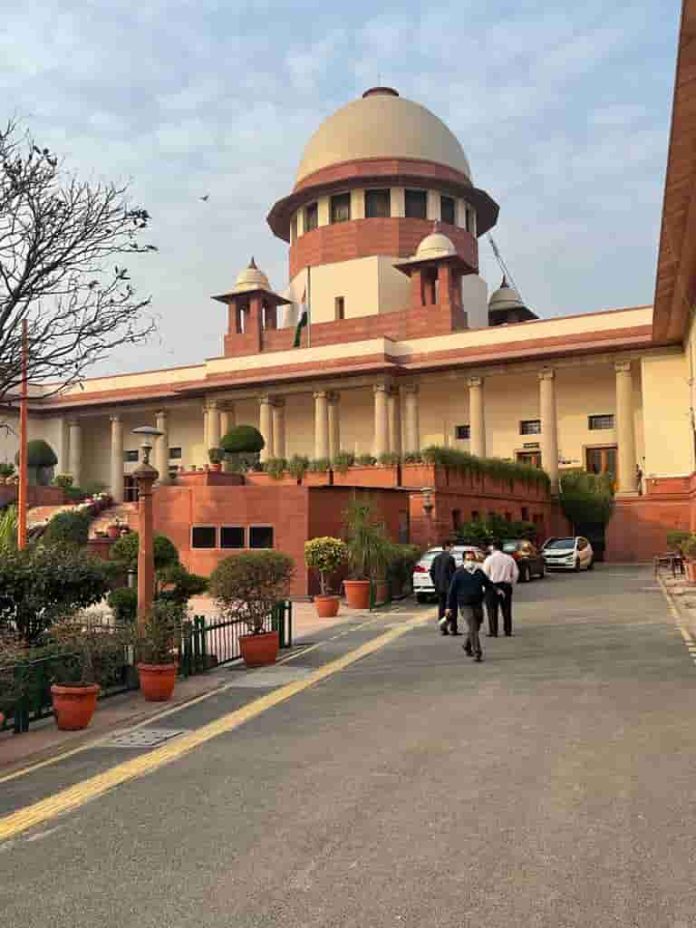The Supreme Court on Wednesday said that an offence of criminal conspiracy punishable under Section 120-B of the Indian Penal Code (IPC) will be deemed a scheduled offence under the Prevention of Money Laundering Act, only if the alleged conspiracy was directed towards committing an offence specifically included in the schedule of the PMLA.
The Bench of Justice Abhay S. Oka and Justice Pankaj Mithal passed the orders on a petition challenging the Karnataka High Court verdict, which refused to quash the proceedings in a case pending before Special Judge, Bangalore for the offence of money laundering against her under PMLA.
The case pertained to a complaint filed by the Enforcement Directorate (ED) on March 7, 2022 against the former Vice-Chancellor of Alliance University, which stirred a controversy.
An FIR in the predicate offence was registered under Sections 143, 406, 407, 408, 409, 149 of IPC. Though the offences in the present case were not ‘scheduled offences,’ the Enforcement Directorate applied PMLA by invoking Section 120B IPC, which is a scheduled offence.
The ED had charged the petitioner under Sections 44 and 45 of PMLA, citing offences defined under Section 3 read with Sections 8(5) and 70, which were punishable under Section 4 of PMLA.
PMLA can be invoked only in relation to the proceeds of crime arising out of offences mentioned in the schedule of the Act.
Last week, the Special Bench hearing applications to reconsider the Vijay Madanlal Choudhary judgement had orally remarked that ED cannot invoke Section 120B IPC when the criminal conspiracy was not linked to a scheduled offence.
The ED had claimed that during her tenure as VC of Alliance University from 2014 to 2016, the appellant acquainted with Madhukar Angur (Accused no.1), conspired to execute a sham and nominal sale deed without any consideration, involving properties belonging to Alliance University.
It was further claimed that she facilitated Accused No. 1 in using her bank accounts to conceal money syphoned from the university. The Special Judge proceeded with the case, taking cognisance of the offence.
The petitioner then approached the Karnataka High Court, seeking to quash the proceedings under Section 482 of the Criminal Procedure Code (CrPC).
Relying on the judgement in Vijay Madanlal Choudhary v. Union of India & Ors, the High Court pointed out that the phrase used by the Apex Court was ‘any person’ and not ‘any accused’.
Therefore, one need not be accused in the principal offence to be subject to proceedings under the Act. The Bench further ruled that even assisting in the process or activity constituted a part of the crime of money laundering. The appellant then moved the Supreme Court.
Appearing for the appellant, Senior Advocate Meenakshi Arora on Monday submitted that her client was neither named in the FIR nor in the subsequent charge sheet. She was only arraigned as an accused for the first time in a complaint under Sections 44 and 45 of PMLA, noted the Senior Counsel.
Calling PMLA an independent code, the Additional Solicitor General contended that a person not named in the FIR can be arraigned as an accused.
The High Court further deliberated on whether properties purchased prior to the commission of a predicate scheduled offence could be considered as “Proceeds of Crime”.
Relying on Vijay Madanlal Chowdhury vs Union of India, Arora argued that proceeds of crime must be derived from criminal activity related to a scheduled offence. The stance was opposed by the ASG.
The Apex Court further deliberated on whether Section 120-B of the Indian Penal Code (IPC) could be utilised independently by authorities under PMLA for investigation or if it must be read together with other scheduled offences.
Arora vehemently argued that Section 120-B could not stand alone, emphasising the need for a conspiracy to commit an illegal act mentioned in the scheduled offences under Section 2(y) of PMLA.
The bench then posed a hypothetical scenario to the ASG, saying that if there was a theft of Rs 100 crore and there was no scheduled offence other than 120-B, will the authorities under PMLA have the power to initiate the prosecution?
The ASG submitted that the authorities would rightfully have the power to investigate the offence, citing Section 120-B as a scheduled offence under Section 2(y) of the PMLA Act.
The Senior Counsel for the petitioner, however, submitted that in accordance with Vijay Madanlal Chowdhury vs Union of India & Ors, the existence of proceeds of crimes was quintessential and the authorities under PMLA cannot step in sans the thereof.
(Case title: Pavana Dibbur vs The Directorate of Enforcement)


